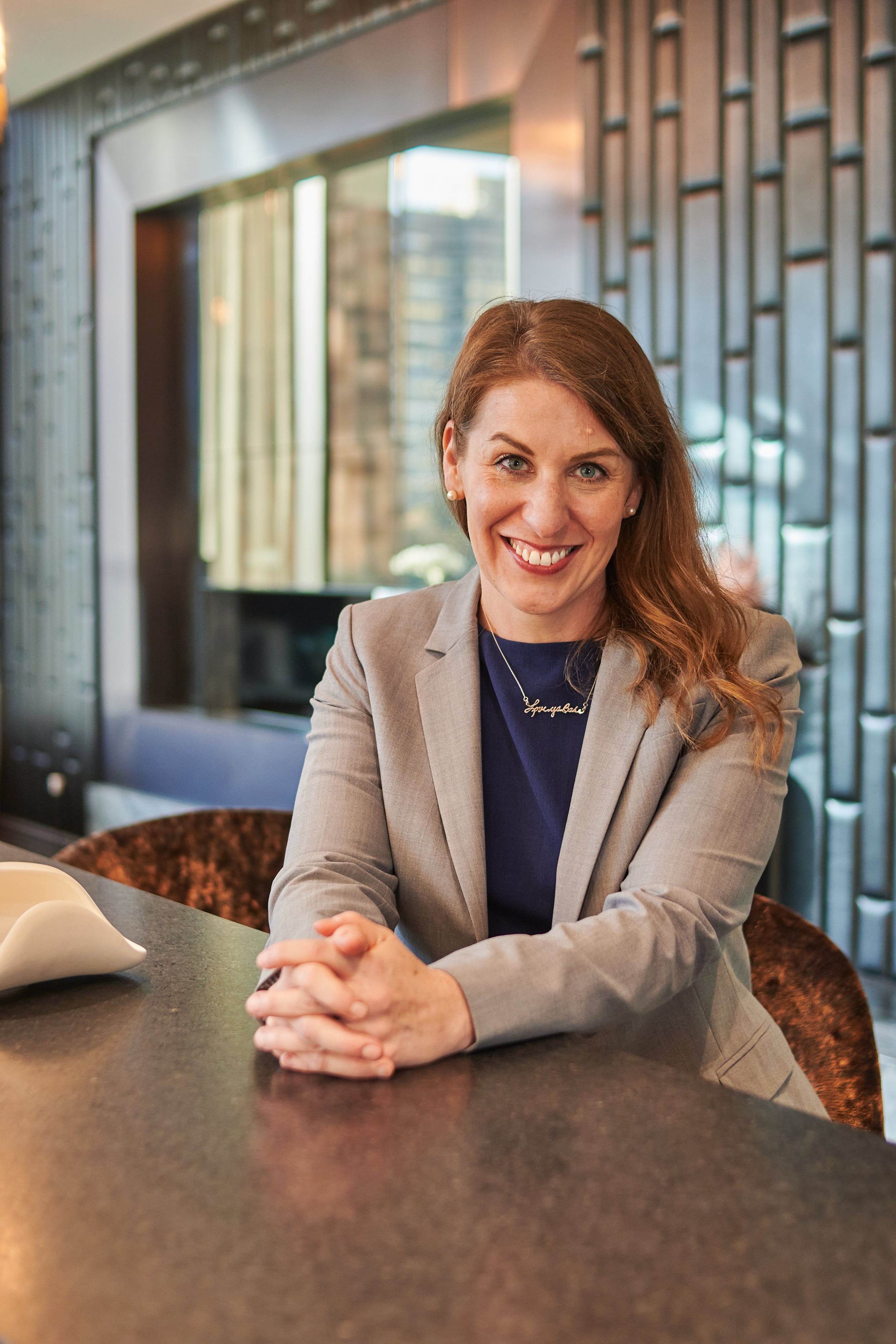While the rules and principles of accounting seem to remain constant, technology continues evolving at a rapid pace.
This technological revolution can feel daunting, but according to Jennifer Cryder, BBA '03, the first female CEO of the Pennsylvania Institute of CPAs (PICPA), technology poses a huge opportunity for early career professionals.
“A big part of that work that we do at PICPA is attracting students into the profession and helping them understand what a career in accounting could mean,” Cryder says. “When we have those conversations, technology is always front and center.”
“I think technology has replaced a lot of entry-level work, and that's a great opportunity for somebody entering the profession, because it means you get to the interesting work earlier in your career.”
Her perspective is corroborated in numerous publications, including a recent article published by the Journal of Accountancy.
According to the article, artificial intelligence, also known as AI, has become very proficient at completing repetitive entry-level tasks. It can even help firms tackle challenges related to production capacity, staffing shortages and accountant burnout.
“Often, I get the question: is AI going to replace the work that CPAs do or the need for accountants? In my opinion, AI will not replace CPAs; AI will replace CPAs that don't understand how to use AI,” Cryder says.
Technology has empowered young accounting professionals to engage in analysis and decision making at the start of their careers—jumping right into work that was previously reserved for more senior colleagues.
“As an early career professional, you can look at leaders and say, ‘The technology did the work, but I've done the analysis and thinking—here's how I can power your business to grow,’” Cryder explains.
Emerging technologies are not just for early career professionals, though. Cryder emphasizes the importance of adaptability and continuous learning in the accounting field for professionals throughout their careers.
“The reality is, if you're going to stay in the profession today as a CPA, you have to continuously unlearn and relearn,” she says. “If mid-career professionals haven't been unlearning and relearning, they may fall behind.”
For accounting professionals seeking insights about the industry, PICPA emerges as a beacon of information.
“PICPA really strives to be that resource for CPAs and professionals who are trying to stay up to date,” Cryder says. “From hot topics, blogs, podcasts, articles and sessions—we try to pull some of the best thinking in the profession together and be a resource.”
Cryder’s own experience has been a testament to her commitment to learning.
Despite opportunities to attend college in her home state of New Jersey, Cryder chose to attend Temple University as an out-of-state commuter.
“I wanted to do something big with my career, and I wanted to attend a school that was going to set me up for success, and I felt like that was Temple,” Cryder explains.
She credits professor Christian Wurst for helping foster her interest in accounting, and the Center for Student Professional Development (CSPD) for helping her learn about career preparation as a first-generation college student. Cryder recalls how her academic and internship experiences made her feel well-prepared to enter the accounting workforce.
After her graduation from Fox, she continued to work at Goldenberg Rosenthal, a small accounting firm where she previously worked as an intern. Working through two acquisitions with the company, she found herself a leader in one of the largest accounting firms in the nation—EisnerAmper.
After 15 years, she took a leap of faith to work at PICPA as a chief financial officer and vice president of operations. Now, after progressing through the organization and becoming CEO, Cryder guides the work of the PICPA Board and Council, drives the professional development of PICPA members, provides thought leadership for the accounting profession and helps create a culture of success through change and industry disruption.
“I could see that PICPA was a really significant opportunity to make an impact,” Cryder says. “And now, I have the amazing opportunity to interact with some of the smartest people in the CPA profession.
“I just take every opportunity I can. I ask every question I can.”

